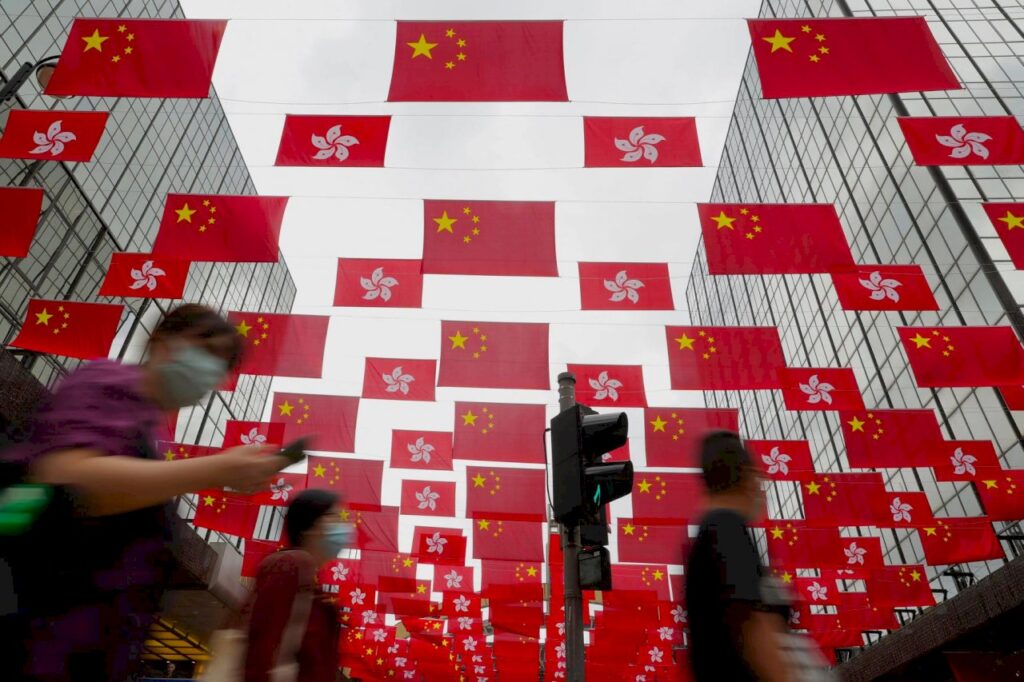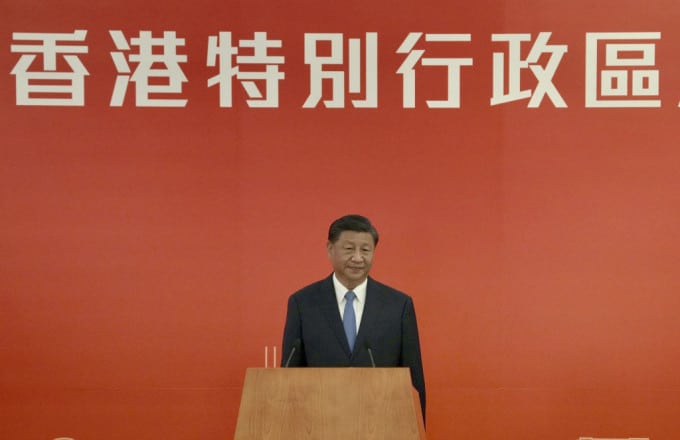The Hong Kong Academy of Politics and Administration, which was founded two years ago, is about to graduate its second class of students. They set their own topics for the policy study unit, which involve politics, economics and people's livelihood, and there are many social problems that need to be solved. In last week's report, someone raised a big problem that Hong Kong has to face: how to relieve citizens' doubts about Article 23 of the Basic Law. On the one hand, legislating for Article 23 and implementing double universal suffrage are also constitutional responsibilities that must be resolved eventually; on the other hand, the concept and meaning of some treasonous acts are unclear, and there is a risk of falling into the legal net by mistake, making it difficult to let down our guard. Whenever there are policies involving the Mainland, the issue of trust will become the focus. This was true then, and it is true now. How easy is it to relieve doubts?
The politics of fear is no way out
People's deep-seated fear of China is deeply rooted and has always been an intractable knot in Hong Kong, and it will become even tighter in the complex current situation. Take Article 23 as an example. Judging from the diplomatic struggle between China and the United States, the boundaries of national security will be adjusted according to national interests. The United States’ arbitrary ban on Huawei is the starting point. In the future, will Hong Kong’s understanding of national security follow China’s Change of interests? Su Xun once said the fable of three people crossing the valley, saying that everyone in the world is driven by the situation. If a tiger approaches, even a timid person can cross the chasm and walk on level ground. Assuming that doubts cannot be gradually resolved in the future, when fear, the invisible tiger, returns and public sentiment boils over, large-scale demonstrations and conflicts can be expected.
New social movements emerged at the end of the last century and have occasionally shown signs of decline in recent years. Common reasons include the lack of leaders to integrate demands, the inability to advance and retreat, and the weakening of moral halo and other organizational and strategic deficiencies. The late Columbia University professor Erskine's famous article "Intelligence is Moral Duty" talks about everyone's moral obligation to recognize whether the consequences of a certain behavior are good or bad. Good intentions may lead to bad consequences. Only those with intelligence can consider all options, overcome fear, create opportunities, and practice goodwill in the right way.
Angry people cannot be sustained
Appealing to popular sentiments of fear and anger may initially win concessions from the regime, but most will not be able to do so once enthusiasm fades. The "Yellow Vest" movement was originally very powerful and held more than 30 rallies every weekend since the end of last year. However, demonstrators from both left and right factions failed to formulate an acceptable solution, and the protracted movement made the movement lose its focus. The radicals among them began to adopt black bloc tactics. Masked protesters dressed in black destroyed, looted, and set fires. The spread of chaos caused public opinion to reverse. Last month, representatives of the "yellow vests" were defeated in the European Parliament elections, with only half a percentage of the vote. At the same time, French President Macron’s domestic support has returned to pre-movement levels.
Faced with social injustice, citizens have reasons to be angry. The author is born in the 1990s, and many young friends around me also choose to take to the streets, and I fully understand their original intentions. The Xi-Trump meeting will be held at the G20 summit at the end of the month, attracting global attention. Demonstrations around climate change, wealth inequality and other issues have become an annual event, but they are not necessarily peaceful. Social activists from all over the world have gathered, and they believe that most of them can demonstrate their civic qualities. They are most afraid that a few radicals will add fuel to the flames and re-enact the police-citizen conflict during the Hamburg Summit the year before last. They also hope that the safety of participants inside and outside the venue is the top priority.
Pan Xuezhi, Director of Democratic Thoughts



